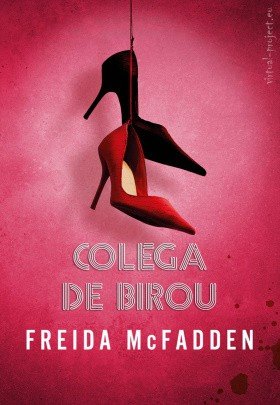Without enthusiasm Soldinck looked toward Cugel: “You have had experience in this line of work?”
“Not in recent years,” said Cugel. “I will, however, consult with Wagmund in regard to modern trends.”
“Very well; we cannot be too choosy, since the Galante must depart on schedule. Bunderwal, you will report at once to the ship. Cargo and supplies must be stowed, and properly! Wagmund, perhaps you will show Cugel your worms and explain their little quirks. Are there any questions? If not, all to their duties! The Galante sails in three days!”

Chapter II
From Saskervoy to Tustvold
1
Aboard the Galante
Cugel’s first impression of the Galante was, on the whole, favorable. The hull was generously proportioned and floated in a buoyant and upright manner. The careful joinery and the lavish use of ornamental detail implied an equal concern for luxury and comfort below-decks. A single mast supported a yard to which was attached a sail of dark blue silk. From a swan’s-neck stanchion at the bow swung an iron lantern; another even more massive lantern hung from a pedestal on the quarter-deck.
To these appurtenances Cugel gave his approval; they contributed to the forward motion of the ship and served the convenience of the crew. On the other hand, he could not automatically endorse a pair of ungainly outboard walkways, or sponsons, which ran the length of the hull, both port and starboard, only inches above the waterline. What could be their function? Cugel stepped a few paces along the dock, to secure a better view of the odd constructions. Were they promenade decks for the passengers’ exercise? They seemed too narrow and too precarious, and too rudely exposed to wave and spray. Might they be platforms from which passengers and crew might conveniently bathe and launder their clothes while the ship lay becalmed? Or vantages from which the crew might repair the hull?
Cugel put the problem aside. So long as the Galante carried him in comfort to Port Perdusz, why cavil at details? Of more immediate concern were his duties as ‘worminger’: an occupation of which he knew nothing.
Wagmund, the previous worminger, suffered a sore leg and had refused to help Cugel. In a gruff voice Wagmund said: “First things first! Go aboard the ship, make sure of your quarters and stow your gear; Captain Baunt is a martinet and will not tolerate clutter. When you are properly squared away, search out Drofo, the Chief Worminger; let him provide you instruction. Luckily for you, the worms are in prime condition.”
Cugel owned only the clothes on his back; this was his ‘gear’, although in his pouch he carried an article of great value: the ‘Pectoral Skybreak Spatterlight’ from the turret of the demiurge Sadlark. Now, as Cugel stood on the dock, he conceived a cunning scheme to safeguard ‘Spatterlight’ from pilferage.
In a secluded area behind a pile of crates, Cugel doffed his fine triple-tiered hat. He removed the rather garish ornament which clipped up the side-brim, then, using great care to avoid ‘Spatterlight’s’ avid bite, he wired the scale to his hat, where now it seemed only a hat-clasp. The erstwhile ornament he tucked into his pouch.
Cugel returned along the dock to the Galante. He climbed the gangway and stepped down upon the midship deck. To his right was the after-house, with a companion-way leading up to the quarter-deck. Forward, tucked into the bluff bows, was the forepeak, with the galley and crew’s mess-hall; and below, the crew’s quarters.
Three persons stood within range of Cugel’s vision. The first was the cook, who had stepped out on deck in order to spit over the side. The second, a person tall and gaunt with the long sallow face of a tragic poet, stood by the rail, brooding over the sea. A sparse beard the color of dark mahogany straggled across his chin; his hair, of the same dark roan-russet color, was bound in a black kerchief. With gnarled white hands he gripped the rail and turned not so much as a glance toward Cugel.
The third man carried a bucket whose contents he tossed over the side. His hair was thick, white and close-cropped; his mouth was a thin slash in a ruddy square-jawed face. This would be the cabin steward, thought Cugel: a post for which the man’s brisk and even truculent demeanor seemed unsuitable.
Of the three, only the man with the bucket chose to notice Cugel. He called out sharply: “Hoy, you skew-faced vagabond! Be off with you! We need no salves nor talismans nor prayers nor erotic adjuncts!”
Cugel responded coldly: “You would do well to moderate your tone. I am Cugel, and I am here at the express solicitation of Soldinck! You may now show me to my quarters, and with a civil tongue in your head!”
The other heaved a heavy sigh, as of infinite patience put to the test. He called down a passageway: “Bork! On deck!”
A short fat man with a round red face bounded up from below. “Aye, sir; what needs to be done?”
“Show this fellow to his quarters; he says he is Soldinck’s guest. I forget his name: Fugle or Kungle or something of the sort.”
Bork scratched his nose in puzzlement. “I have had no notice of him. With Master Soldinck and all his family aboard, where will I find accommodation? Not unless this gentleman uses your own cabin, while you go forward to double up with Drofo.”
“That idea is not to my liking!”
Bork spoke plaintively: “Have you a better suggestion?”
The other threw up his arms and stalked off up the deck. Cugel looked after him. “And who is that surly fellow?”
“That is Captain Baunt. He is irritated because you will be occupying his cabin.”
Cugel rubbed his chin. “All taken with all, I would prefer to use a cabin ordinarily assigned to single gentlemen.”
“Not possible on this voyage, sir. Master Soldinck is accompanied by Madame Soldinck and their three daughters, and space is at a premium.”
“I hesitate to inconvenience Captain Baunt,” said Cugel. “Perhaps I should —”
“Say no more, sir! Drofo’s snores will not trouble Captain Baunt, and I daresay we will all manage very well. This way, sir; I will show you to your cabin.”
The steward led Cugel to the commodious chamber formerly occupied by Captain Baunt. Cugel looked approvingly here and there. “This will do quite nicely. I particularly like the view from these windows.”
Captain Baunt appeared in the doorway. “I trust that all is to your satisfaction?”
“Eminently so. I will be very comfortable here.” To Bork Cugel said: “You may serve me a light collation, if you will, as I breakfasted early.”
“Certainly, sir; by all means.”
Captain Baunt said gruffly: “I ask only that you do not disarrange the shelves. My collection of water-moth shells is irreplaceable and I do not wish my antique books to be disturbed.”
“Have no fear! Your belongings are as secure as if they were my own. And now, if you will excuse me, I wish to rest a few hours before inquiring into my duties.”
“‘Duties’?” Captain Baunt frowned in puzzlement. “What might they be?”
Cugel spoke with dignity. “Soldinck has asked me to undertake a few simple tasks during the voyage.”
“Odd. He said nothing about this to me. Bunderwal is the new supercargo and I understand that some weird lank-limbed outlander is to serve as under-worminger.”

























